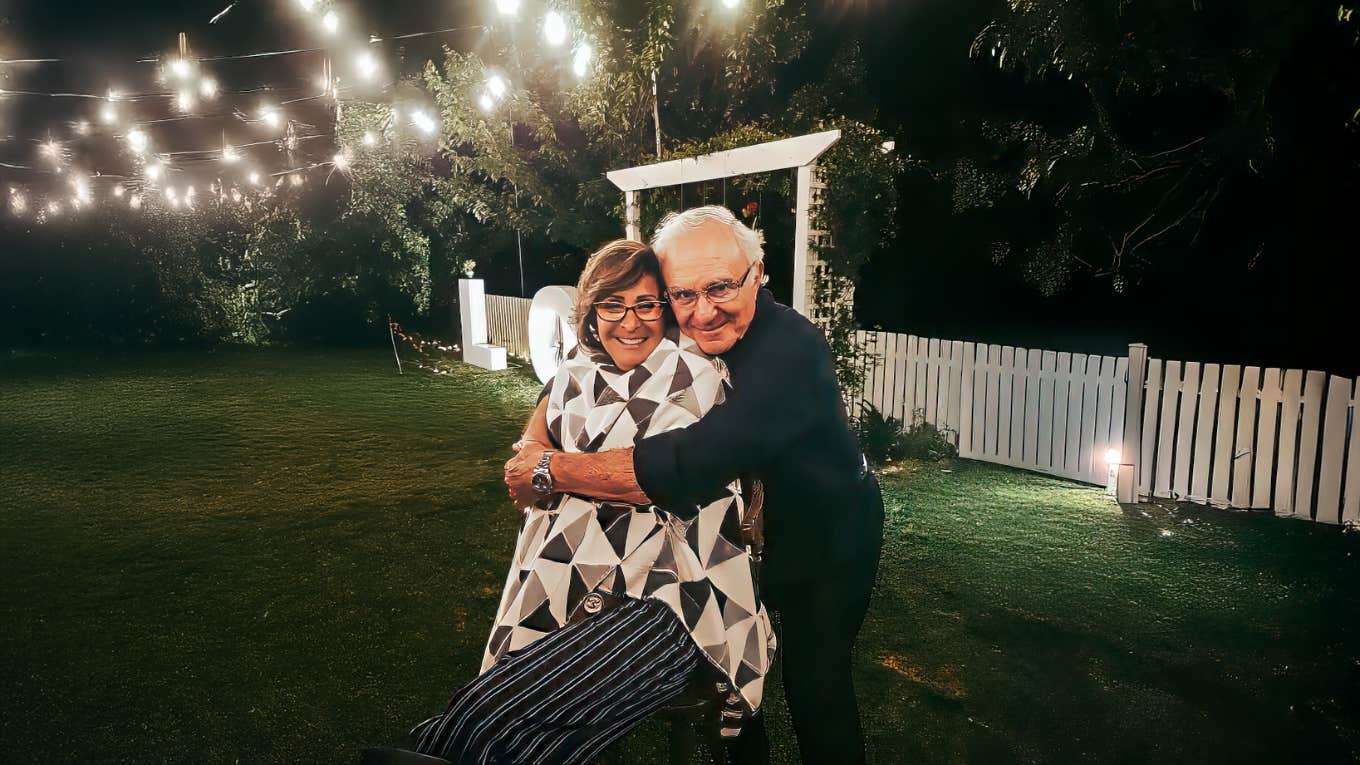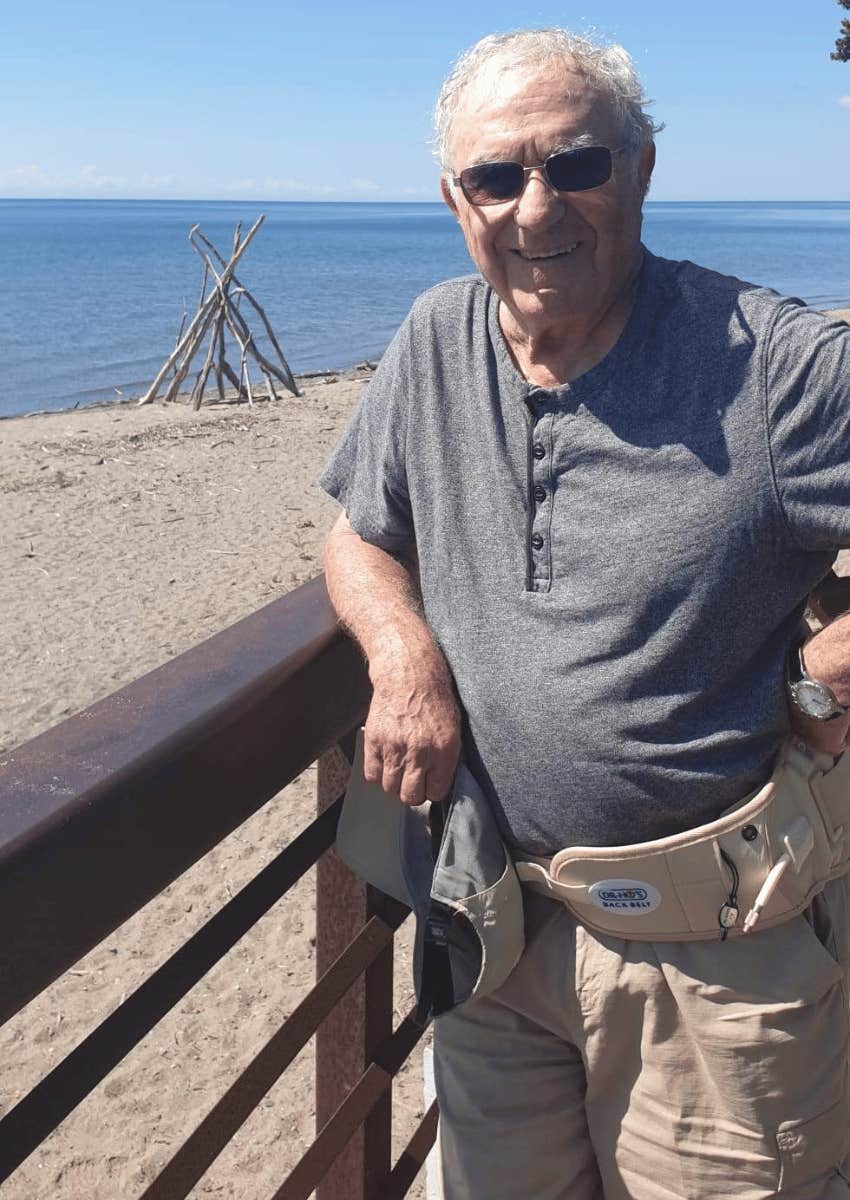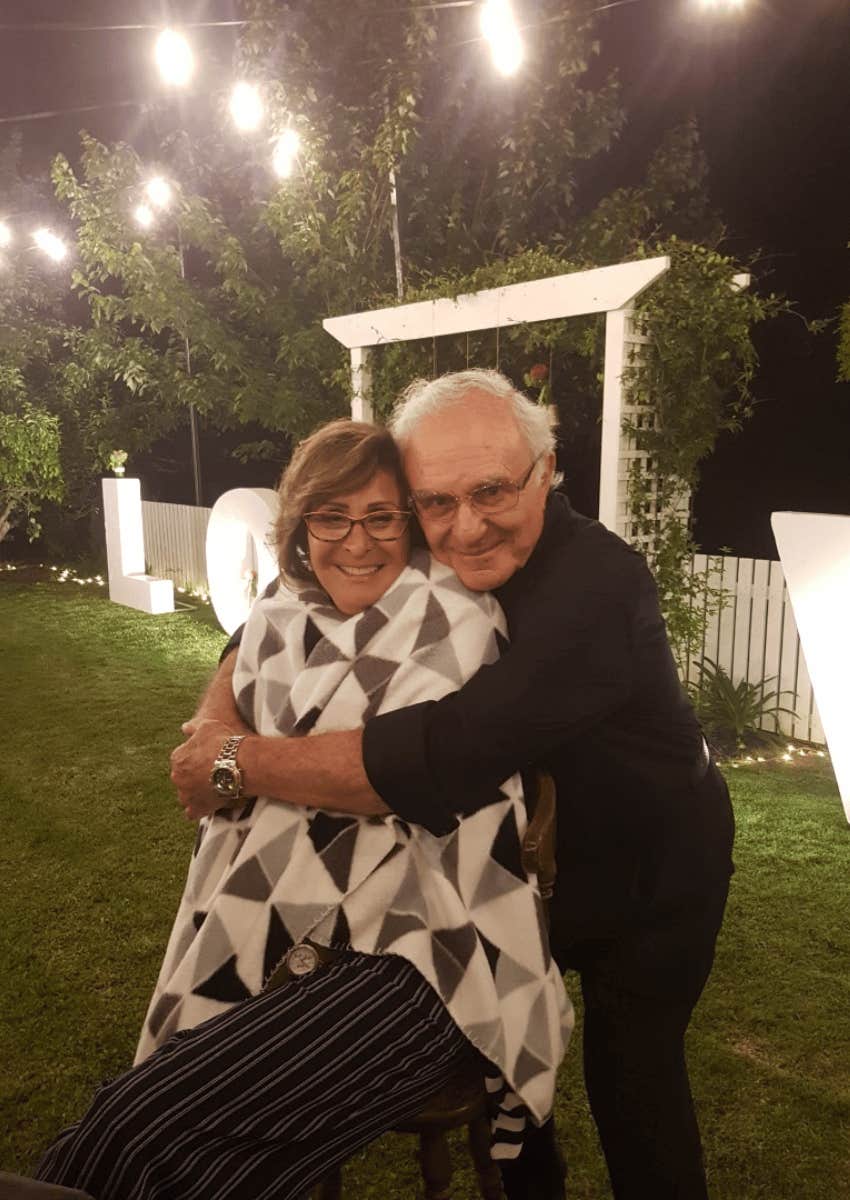The Symptom I Chalked Up To Old Age That Turned Out To Be Early Alzheimer's Disease
I looked for answers so I could get the help I needed to manage my disease.
 Courtesy Of Author
Courtesy Of Author My older brother was a lawyer and then a judge. After he retired at 85, he developed an issue with his memory. He quickly lost the ability to think, to know family and friends, and even to take care of himself.
I was concerned that I may experience a similar fate, having experienced some forgetfulness and chalking it up to old age.
My wife and I had seen a television program about the Toronto Memory Program and decided that this might be a good place for me to call. They invited us in and had me take several tests, and I was diagnosed with early-stage Alzheimer’s disease.
One of the tests showed that I had a larger than average amount of amyloid in my brain and therefore qualified for one of their experimental projects: The LEQEMBI clinical trial had begun.
 Photo from Author
Photo from Author
One of the points that we made during our interview for the trial was that when I turned 50, my ‘smart aleck’ sons gave me a vanity license plate that read “I 4 GET”!
I’d always been forgetful, but as I grew older, perhaps this was more obvious.
My wife questioned the doctor and asked, “Why would we expect his memory to get better at 85!” We thought this came with aging, not a sign of a progressive disease like Alzheimer’s.
My goal was to continue my life as best as possible; I wanted to keep skiing, working out, volunteering at the Toronto Zoo, volunteering at Baycrest Hospital as an actor in their teaching videos, and enjoying our grandchildren and friends. During the trial, no one knew if I had been given the placebo or the actual drug.
 Photo from Author
Photo from Author
At the end of the first two years, I learned I was on a placebo and was asked if I wanted to continue the trial, knowing I would be on LEQEMBI moving forward. I agreed and have been on LEQEMBI for the past three years.
The process has been relatively easy. I had an infusion-related reaction early on with chills and generalized aches, but I let my doctor know immediately, and the staff quickly responded to my wife’s phone call and advised her to give me some over-the-counter meds. I was better within a few hours and have not had any issues with my infusions since.
The twice-monthly infusions take about 2 hours total, including set up to discharge, and they are painless. Every 3-4 months, I have a brain scan to ensure that everything is going well.
In addition, my wife and I go twice a year for a 4-hour interview comparing our recollections of what has gone on in our lives. So far, everything has been pretty consistent.
 Photo from Author
Photo from Author
Living with Alzheimer’s disease has not slowed me down.
When there is snow, I love to ski downhill, though I must admit that I don’t do moguls anymore. I have taken up Paint-By-Numbers and to date, I have done 75 paintings, some of which have been donated, and others are on the walls of my family and friends.
My volunteering is ongoing. I do have trouble remembering some names and some words, and I do forget phone numbers. Thank goodness for cell phone contacts and GPS! Even when I go to the gym I wear a t-shirt that reads, “My name is Zel,” so it’s easier for people to start a conversation with me in case I’ve forgotten their name.
I have been on this journey for five years. I just turned 90, and this experience has given me confidence in my future brain health. I have only positive feelings for all the staff at the clinic, who have become more like friends than just technicians.
I am especially grateful that I have been in this program and that the LEQEMBI has been available to help me. I sincerely hope that people like myself can receive a diagnosis and start treatment with confidence.
Zelik Bocknek is a retired business owner in Toronto, Canada living with early Alzheimer’s disease. He loves to ski, volunteer at the Toronto Zoo, paint, and spend time with family and friends.

